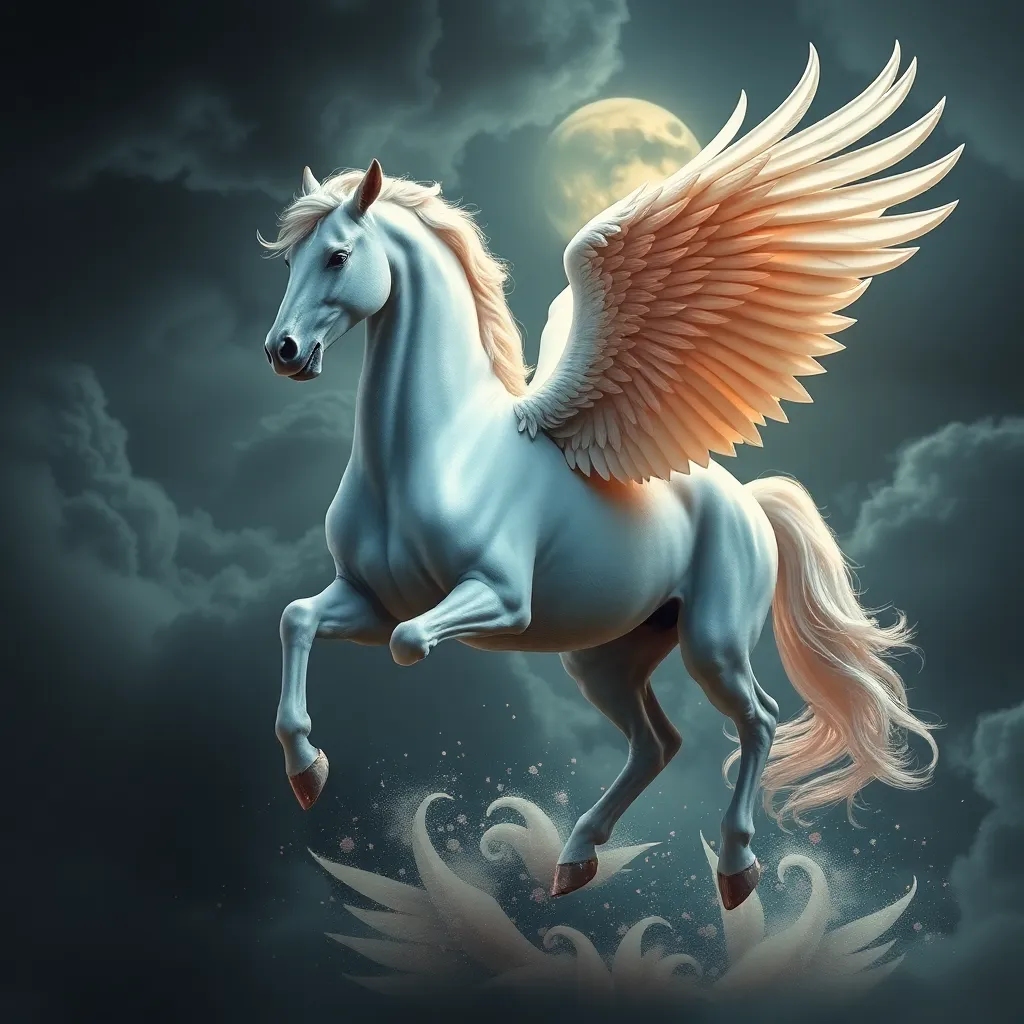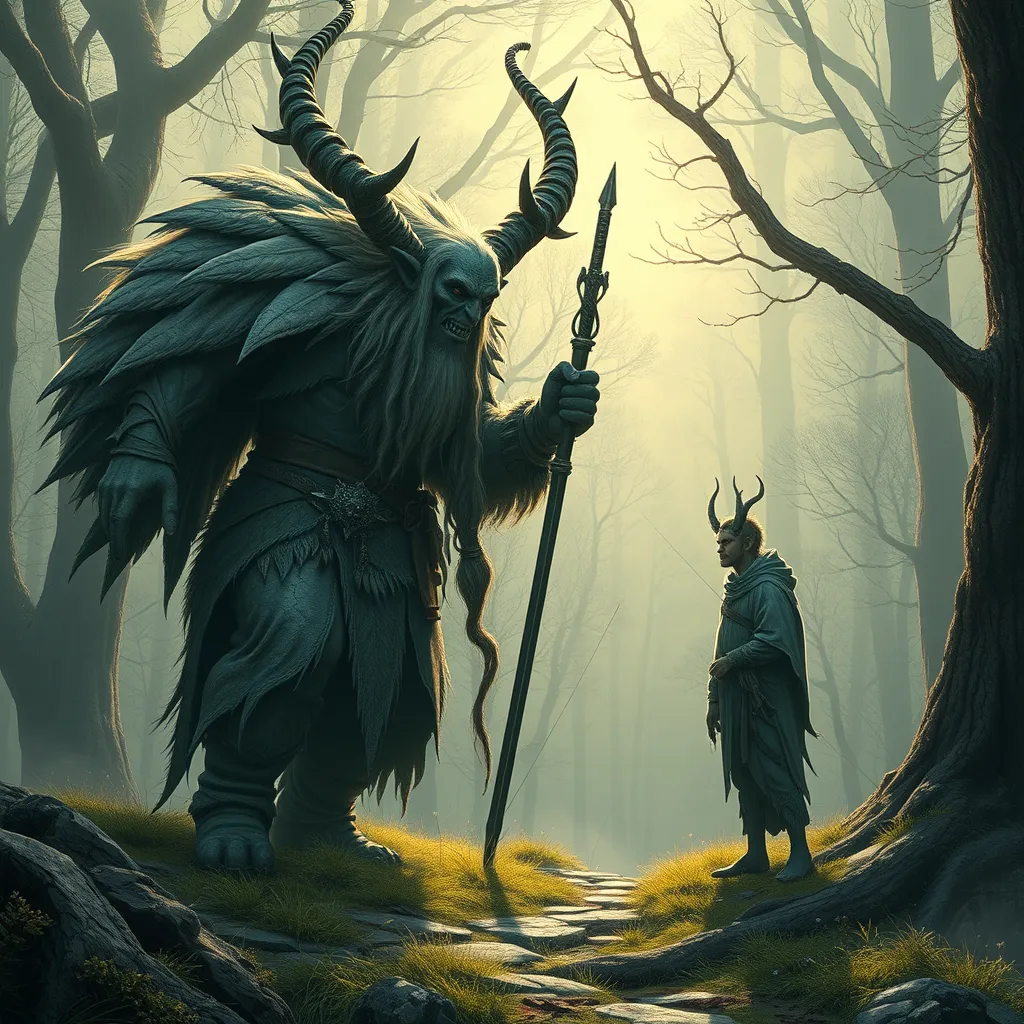The Mythological Horse of Love: Exploring the Use of Pegasus as a Symbol of Romance and Passion
I. Introduction
In the rich tapestry of Greek mythology, few figures are as enchanting as Pegasus, the winged horse. This magnificent creature has captivated the imagination of countless generations, embodying beauty, grace, and an ethereal connection to the divine. While often celebrated for his heroic feats and celestial origins, Pegasus has also emerged as a powerful symbol of love and romance.
This article aims to delve into the various dimensions of Pegasus as a representation of love, exploring its roots in mythology, its significance in literature and art, and its ongoing influence in modern culture. By examining these aspects, we can appreciate how Pegasus transcends its mythological origins to become an emblem of romance and passion.
II. The Origins of Pegasus in Greek Mythology
The tale of Pegasus begins with his extraordinary birth. According to ancient myths, he sprang from the blood of Medusa as she was slain by the hero Perseus. This dramatic origin story highlights the duality of Pegasus as both a creature of beauty and a product of tragedy.
Pegasus is famously associated with Bellerophon, a hero tasked with defeating the monstrous Chimera. With the help of the goddess Athena, Bellerophon tamed Pegasus and rode him into battle, symbolizing the triumph of good over evil. This partnership is significant, as it illustrates the bond between heroism and the divine, with Pegasus serving as a conduit for human aspiration.
Over time, Pegasus was transformed into a celestial figure, soaring into the heavens and becoming a constellation. This ascension not only reinforces his connection to the divine but also establishes him as a symbol of inspiration and creativity, qualities often associated with love and romance.
III. The Symbolism of Pegasus in Literature and Art
Throughout history, Pegasus has been a popular subject in literature and art, often representing themes of love, beauty, and inspiration. In classical literature, poets such as Homer and Hesiod referenced Pegasus, emphasizing his connection to the Muses and the creative arts.
Artistic representations of Pegasus have evolved over the centuries, from ancient pottery to Renaissance paintings. Notable masterpieces include:
- Pegasus and the Muses by William-Adolphe Bouguereau
- Bellerophon and Pegasus by the artist Paul Gustave Doré
- Pegasus and the Muses in various forms of sculpture and frescoes in ancient Greece
As Pegasus transitioned from a mythological figure to a romantic symbol, artists began to depict him in contexts that emphasized love and passion, illustrating his role as a muse for lovers and poets alike.
IV. Pegasus in Modern Popular Culture
In contemporary society, Pegasus continues to capture the imagination, appearing in various forms of literature, film, and visual media. His presence often symbolizes not just beauty, but also the transformative power of love.
Examples of Pegasus in popular culture include:
- The animated film Hercules, where Pegasus serves as a loyal companion to the titular character.
- Literary works such as Rick Riordan’s Percy Jackson series, where Pegasus embodies themes of friendship and loyalty.
- Video games, like God of War, where Pegasus is featured as a majestic steed representing freedom and adventure.
In modern storytelling, the horse often serves as a metaphor for love, signifying the liberation and elevation that comes with romantic relationships. The imagery of a winged horse soaring through the skies resonates with the euphoric feelings associated with love and passion.
V. The Connection Between Pegasus and Romantic Themes
At the core of Pegasus’s symbolism is the deep connection between love and passion. The very act of flight represents the aspiration for higher emotional states and the desire to transcend earthly limitations. In romantic narratives, Pegasus often embodies:
- Freedom: The ability to escape the mundane and explore the boundless possibilities of love.
- Transcendence: Achieving a state of bliss that elevates the soul and connects lovers to each other and the universe.
- Divine Intercession: The idea that love is not merely earthly but also has spiritual significance.
Through these themes, Pegasus acts as a bridge between the earthly and the divine, reflecting the complex and often mystical nature of love itself.
VI. Cultural Interpretations of Pegasus as a Love Symbol
Across various cultures, Pegasus has been interpreted as a symbol of love, each adding unique dimensions to his mythological persona. For example:
- In Western cultures, he is often associated with artistic inspiration and romantic ideals.
- In Eastern traditions, winged horses are sometimes seen as messengers of the gods, embodying spiritual love.
The variations in symbolism across different societies highlight Pegasus’s universal appeal and adaptability as a romantic figure. This cross-cultural resonance underscores the enduring nature of love and its connection to mythological narratives.
VII. The Enduring Legacy of Pegasus in Symbolizing Love
As a metaphor for aspiration and desire, Pegasus continues to inspire contemporary discussions of love. His image evokes a sense of wonder, encouraging individuals to pursue their passions and embrace the transformative power of love.
In modern contexts, the relevance of Pegasus as a symbol of love can be seen in:
- Literature that explores themes of unrequited love, desire, and the pursuit of dreams.
- Artistic expressions that celebrate the beauty and complexity of romantic relationships.
Looking ahead, the interpretations and adaptations of the Pegasus myth will likely evolve, reflecting changing societal attitudes towards love and romance while maintaining the core themes of aspiration and divine connection.
VIII. Conclusion
In summary, Pegasus stands as a multifaceted symbol of romance, embodying the ideals of love, freedom, and transcendence. His journey from mythological origins to a modern-day emblem of passion illustrates the profound impact of mythology on contemporary perceptions of love.
As we reflect on the enduring power of Pegasus in romantic symbolism, it becomes clear that this majestic creature will continue to inspire and evoke feelings of love and aspiration for generations to come.



